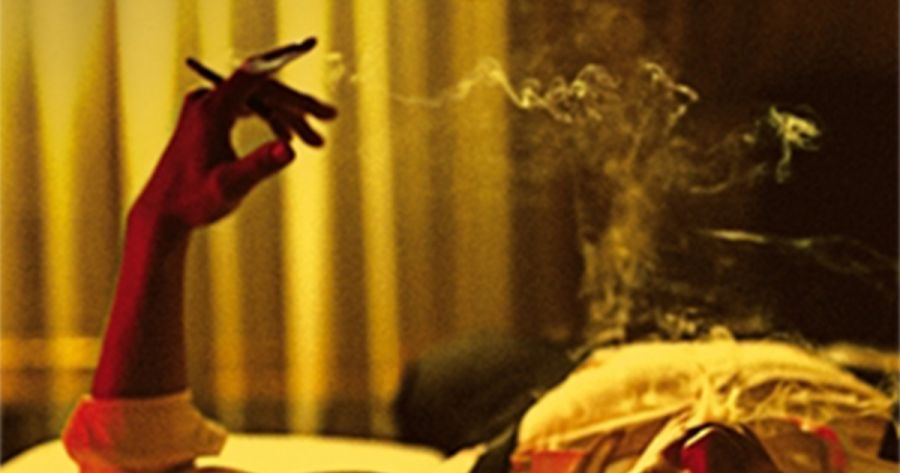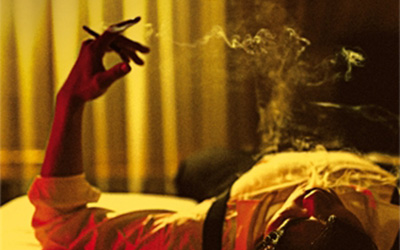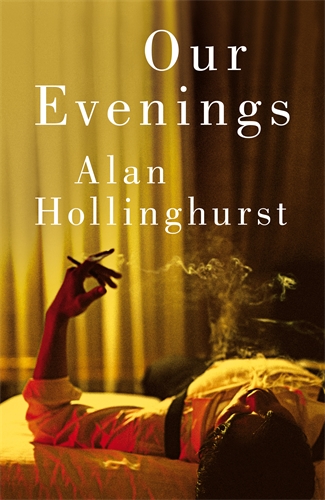
- Free Article: No
- Contents Category: Fiction
- Review Article: Yes
- Article Title: Source of the rot
- Article Subtitle: An elegiac novel from Alan Hollinghurst
- Online Only: No
- Custom Highlight Text:
There must be something in the post-Brexit air encouraging British novelists to take the long view. Alan Hollinghurst’s Our Evenings joins recent doorstopper works – from Ian McEwan’s Lessons (2022) to Andrew O’Hagan’s Caledonian Road (2024) – that explore postwar Englishness from a standpoint of jaded retrospection. While they function as a kind of summation or reinforcement of their authors’ talents, they also offer a stinging critique of the nation’s propensities and historical prejudices. It is even possible to discern in the margins a note of contrition, an acknowledgment of the perspectives these writers have overlooked or neglected until now.
- Featured Image (400px * 250px):

- Alt Tag (Featured Image): Tim Byrne reviews ‘Our Evenings’ by Alan Hollinghurst
- Book 1 Title: Our Evenings
- Book 1 Biblio: Picador, $34.99 pb, 467 pp
- Book 1 Cover Small (400 x 600):

- Book 1 Cover (800 x 1200):

- Book 1 Readings Link: https://www.readings.com.au/product/9781035038534/our-evenings--alan-hollinghurst--2024--9781035038534#rac:jokjjzr6ly9m
The novel opens with a death notice that sends Win into a state of heady reminiscence as he recalls the weekend he spent with the Hadlows, the ‘left-wing plutocrats’ responsible for his scholarship and thus his access to the upper echelons of British society. The Hadlow’s son Giles, a year older than Win, seethes with resentment and possibly something darker, a kind of sexualised loathing; he torments and seduces his schoolmate in equal measure, and remains a figure of grievance throughout. Richly evocative of L.P. Hartley’s The Go-Between (1953), this early section perfectly elucidates the protagonist’s position as an outsider only conditionally allowed in. Proximity to wealth is a kind of benediction of its own, and Win is enchanted as well as wary.
Hollinghurst sets up his novel as a battle between Giles and Win, a battle of wits and character, but also opportunity and circumstance; it is a contest that highlights the polarisation in British life between the powerfully privileged and the subtly but firmly marginalised. And yet, for the most part the author prefers to keep these adversaries separated, on opposite sides of the ring. There is no real showdown or climax, and while we are informed of Giles’ baseness and perfidy, we rarely see his sins for ourselves. He remains a merely contemptible idea rather than a fully realised villain.
Curious, too, is how little of Win’s life as a professional actor is on the page. While we get a strong sense of his career trajectory, we learn almost nothing about the thrill and terror, the precariousness and triumph, of the theatre. Hollinghurst does demonstrate the ways in which his protagonist is sidelined and diminished over the years, siloed by his racial heritage into ‘foreigner roles’, othered by exoticism. Win is often mistaken for the only other Asian-English actor on television; while he has the talent, he never seems to be cast in a lead role. Even among friends, Win is constantly dealing with ‘the excitement, principled, and muddled too, about other races, black singers, Burmese dancers, the smart English queens turned on by the dark skins, the difference’. Nothing overt stands in his way, but Hollinghurst lets us glimpse the massive wall of prejudice that thwarts Win at every turn.
What does interest – indeed, has always interested – Hollinghurst is sex and sexuality, the way it presses into prohibited spaces, blurring boundaries of class and race. Apart from the furtive bedroom skirmishes with Giles, Win’s various lovers are convincingly articulated – from the botched attempts to seduce Nick in Oxford to the passionate but short-lived affair with black actor Hector, through to the shuffling gratitude of his later years with Richard. There is a distinct mellowing in Hollinghurst’s writing about the act of sex that looks like coyness from the author of The Swimming-Pool Library (1988), but he beautifully captures the titillation and mild shock of sexual attraction, the coded glances and come-ons, the endearing awkwardness of belts and shirtfronts. Lust itself seems almost revelatory in Our Evenings, like a treasure chest or an escape hatch.
Contrasting Win’s halting love life and peripatetic career is the romance between his seamstress mother, Avril, and a clipped, middle-class woman named Esme Croft. Forthright, sensible, and bracingly self-assured, Esme strong-arms her way into the lives of the Wins with unswerving determination. In a different novel, she would be an antagonist intent on dislodging Win from his mother’s affections; here, she quietly settles and completes the family unit. Hollinghurst seems to be suggesting an alternative to Win’s clandestine affairs, all that fumbling in the dark, but it is also clear that he finds something exciting about the shadows and something stolid and inflexible about Esme. The women’s unfussy, circumspect relationship is warm and enduring, but it is also safe and therefore fundamentally conservative.
Family is a key social dynamic in Our Evenings, even if it fails to protect or shape its members. Giles becomes increasingly mysterious and off-putting to his parents, who remain perplexed and alarmed at the direction his political career takes. There are several scenes, expertly detailed, that suggest that the Hadlows would rather have Win as their child, adopted perhaps from an obvious slum. But their largesse, always seemingly forthcoming, never really materialises and they remain a vaguely benevolent and largely ineffectual presence in his life. Win’s own family feels more unconditionally loving, its modesty crucial to its success. But it rarely shields Win from the aggressions of the wider world; in the face of the racism and ignorance that is a part of his daily existence, Avril and Esme are basically impotent. The hastily assembled families of the theatre compensate a little, but there is something unmoored and lonely at the heart of the novel, a pull to the melancholic and the irretrievable.
Our Evenings is a masterful elegy, more sombre than Hollinghurst’s previous work but still alive to the shudder and elation of sexual conquest. If there is a perceptible reticence about the body – we are a long way from the blunt viscera of Christos Tsiolkas or Garth Greenwell, where gay sex is akin to a bloodsport – there is also a commensurate sensitivity and engagement with difference, with the ways difference can enrich as well as isolate.
As for England itself, where self-assurance has crumbled into despair and the impulse toward empire has curdled into racist protectionism, Hollinghurst seems almost resigned to its decline and is certainly clear-eyed about its inadequacies. Early in the novel, as Win approaches the Hadlows’ mansion, he notices that ‘the bright distances were hidden from view and the places that ten minutes earlier had lain below us like objects on a tray had slipped back behind woods and hedgerow trees into the everyday mystery of the landscape’. Our Evenings reminds us that our perspective matters, that we choose which objects to display and therefore which stories to champion. If Win’s acting career exists largely at the margins, Alan Hollinghurst ensures that for us, he finally gets his moment centre stage.


Comments powered by CComment